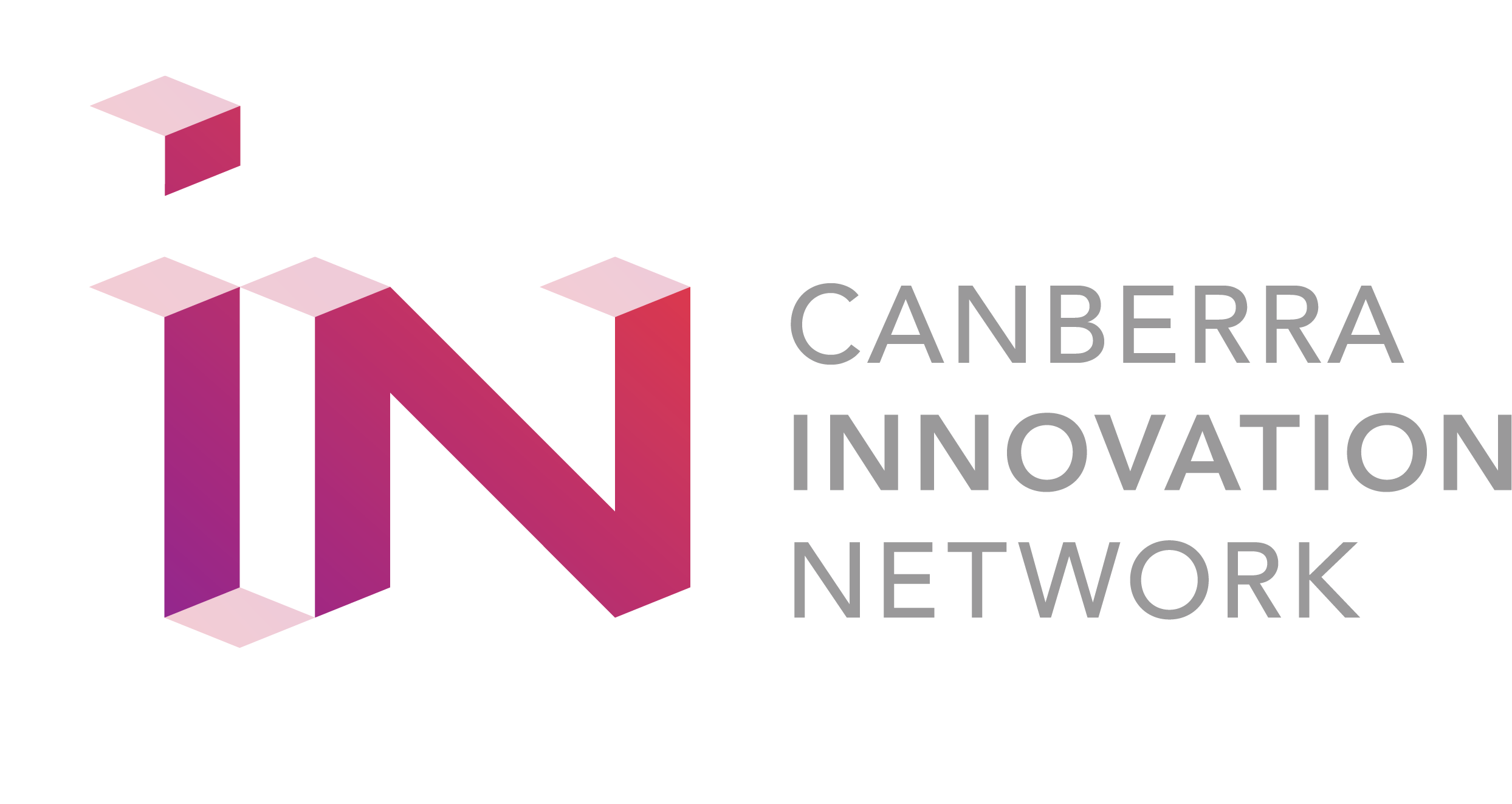- 27 September 2021
- Posted by: Canberra Innovation Network
- Categories: General News, Weekly Innovation Challenge

As part of the Canberra Innovation Network’s commitment to supporting our community of entrepreneurs during the ACT lockdown, we’ve reinstated our popular Weekly Innovation Challenge. The Weekly Innovation Challenge is for every entrepreneur, founder and business leader. If you’re growing a business, developing a product or just want to change the world, our goal is to show you relevant new ideas and challenge you to rapidly try them out. Every Lockdown Monday at 2pm we will introduce a topic, host guest experts, allow room for questions and end by setting a useful, actionable challenge for you to work on.
In the sixth instalment of the Weekly Innovation Challenge we hosted Renee Beerworth, all-around HR guru and Director of Spinach Ventures. She spoke on the theme of “How to Get the Most Out of Your Team”, which is particularly tricky given the circumstances of a lockdown and enforced remote work. A big thank you to everyone who participated, and be sure to come back each Monday during lockdown to ask questions live during the next weekly challenge!
NB: Below we share notes taken from the live meeting. This is not a transcript and these are not direct quotes; for those, refer to the video above.
Welcome to #6 of our Weekly Innovation Challenge series! These one-hour webinars are meant to help take you outside of your day-to-day while giving you some fresh thinking and support.
This week we’re pleased to be joined by Renee Beerworth, Director of Spinach Ventures. And today’s theme … is TEAM! For something to actually happen, it normally involves more people than just you. This meaning of ‘team’ includes subcontractors, investors, support systems and more, and these people are so very important.
After a career looking at people and culture at large companies around the world, Renee learned that SMEs didn’t really have that asset, the focus, on people and culture that big corporates are able to invest in. People should feel they belong, that they matter, and that their uniqueness is key.
So how do you get more out of your people? UNDERSTAND them. What do they care about? What drives them? What connections can you make on a human level?
What concrete steps can you take to make this happen?
With the people in your teams already, we know what they’ve been employed to do and we understand their skills and experience. We have expectations around what they’ll deliver. But things change. It’s important over time that we connect and see if their motivation’s changed. Keep those conversations going. What do they value? Not salary — but what makes them want to do more? Pay attention to engagement — it’s a direct output of employee experience.
Open up that conversation outside of everyday work. And invite people to collaborate! It’s how you’ll learn what they’re interested in and how they work. Encourage creative thinking and making mistakes to learn from.
You need an environment in which you feel safe before you can make mistakes and ask questions.
How is all of this different during a lockdown and with the changed way of working we’re all adapting to?
The notion of the way we THINK work is structured or done is something we need to get past. “Flexible work” is so much more than allowing a schedule that considers school drop-offs. “What’s important to me?” is the question people are asking. Understand what people care about and shape work and contracts accordingly. There are so many different arrangements and arrangement structures, so understand the scope of the work and break it down. What is a person good at, what are they available to do and when — you can then craft a job and job description to the person in the mix.
Think about a job title and role, then try and think of the same at a different organisation. This can often help you align the things you care about. A “software engineer” is not just a “software engineer”, depending on where they are and where their big goals are placed.
Keep the big picture in focus, and be really clear on your values and how you operationalise them — if the value alignment is there, everyone can contribute in a way. Issues are more likely to arise when values don’t align. Values are a constant even when responsibilities change. Nip bad behaviours in the bud.
Question — as teams grow, how do you as a manager truly get to know everyone on your team? When you start small, you’re in each other’s pockets, but when you find yourself at 20, 30 people, it makes sense to have a bit of structure to alleviate the team processes. And once again it goes back to values — make sure that each new manager is aligned with the value set. And people-decisions are often in grey areas. As a manager, document what success looks like, be clear about what behaviours are okay and not okay — behaviours change quickly with growth!
Question — outcomes-focussed management is confusing. Can we think about values and behaviours in the same way? Because we need to be able to bring values to life. Otherwise it’s dot points on a wall.
If you achieve your outcomes by going outside your values, you haven’t achieved those outcomes.
Values can be seen in the way we behave. See a behaviour, name it, peg it to a value.
A safe place is one in which anyone can propose a robust discussion, speak out and be heard.
How do you manage risks where creative tension exists? Go back to values! We all have different styles and personalities, and all relationships require work, but with a shared values framework you all have the same end goal.
Any cool tools that help build culture? Fingerprint For Success — it’s a personality questionnaire developed by people in the coaching space, and helps identify motivation. You get your results instantly, the platform itself is a coaching platform, and there’s the opportunity for teams to connect. Both Atlassian and Canva use this tool.
Do people have the right tools and technology to do their jobs well? This is another important question to answer.
How important is setting the right culture? Culture’s going to happen anyway — so you can let it just happen, or you can set it right, right from the beginning. Wouldn’t you want to be strategic about it? It’s tricky because it isn’t black and white, but integrated values result in culture and support your business down the line.
Hiring is part science, part art. Remember that, and that you won’t always get it right. But if you bring it back to values you’re off to a good start.
Next Monday is a Public Holiday; see you the following week, 11 October, at 2:00 PM!
Week 6: What’s something I can take away from this conversation and bring to my team? How can I better understand the humanity they bring to my organisation? Go back to your team, imagine Renee sitting next to you, and think about what you’d say or ask to make everyone feel safe, heard and understood?
Week 5: What can I do for my business to improve my money management? That might be downloading some software or having a convo with my accountant …
Week 4: Have a hard look at what you can offer a potential investor and decide if you’re ready, or need to do some more work first. Once you’re ready put together a dream list of a half-dozen investors and practice your pitch on a mirror and on your lockdown bubble.
Week 3: Sign up for one of the free trials mentioned above and test it out on your site. If you’re averse to that, identify a friend who isn’t familiar with your site and give them the five-second-challenge, then implement a change you learn is necessary from what they spot.
Week 2: Identify the ONE thing you can do better for your customers, and just bloody do it!
Week 1: Realise one problem I have and share it with someone I trust (“I’m not sure what to do about XYZ” or “I’m worried about ABC”). Saying it out loud is sometimes all I need to do! But other times the input from my team, a friend or another member of the innovation community with an understanding of my industry is just what I need to solve this.



